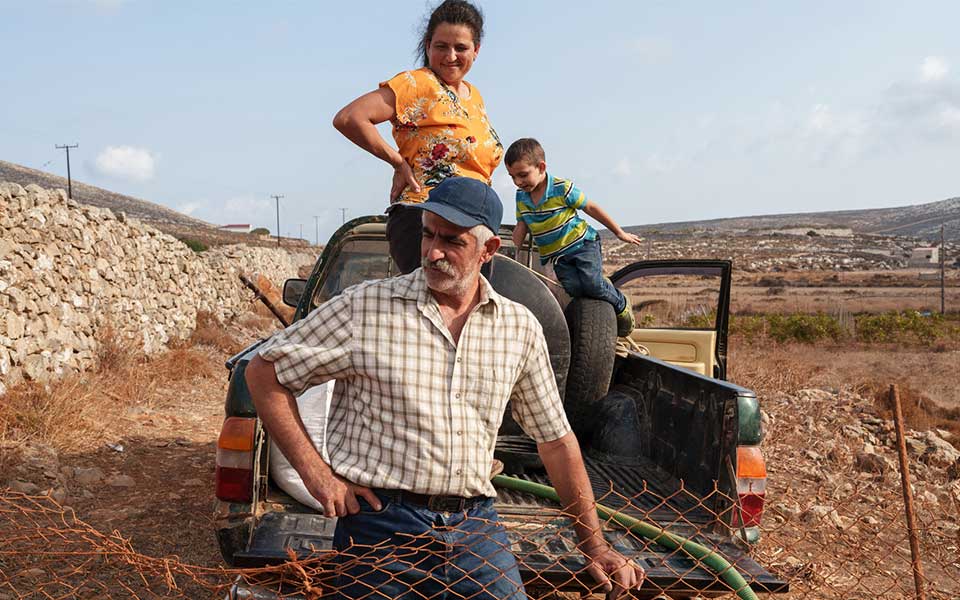In early September, around 6 am, Mary Diakaki and her husband Giannis Vonapartis set out in their rural vehicle for Maritsa, an area on Kasos’ eastern side where they tend and milk their herd. The semi-mountainous dirt road is rough and full of large boulders. In the past, these same stones were used to build the island’s dry-stone walls, which are scattered throughout the landscape, including the steepest slopes. They left Fri behind; the sea is visible to the left, and Karpathos looms ahead.
They come to a halt next to a donkey after driving for half an hour and making a brief stop for water. The goats are waiting down below, still low on milk. The sheep are on the top of the hill, around their mitato (round domed buildings). Their milk has run out. Mary feeds the donkey with animal feed before beginning the steep ascent because there is no vegetation to graze on at this time of year. Giannis starts a small generator to pump water through a blue hose high up to the buckets before heading towards the goats to fill the makeshift troughs. After the animals have been fed and watered, it is time to milk.
Their movements are now automatic and perfectly synchronized thanks to years of practice. Despite the indescribable toil, the first rays of sunlight reveal a wild joy on their faces. Once again, after thirty years of marriage, they have proven themselves equal to their duties and return together as victors. Their day is just beginning. She will go to the cheese dairy, next to their house in Aghia Marina, to manage the scant thirty kilos of milk that are currently available. The rest of the time, when the cheese dairy is in full operation, in addition to their own milk (about 25 tons from their 220 sheep and 80 goats), they buy another 25-30 tons from other producers.
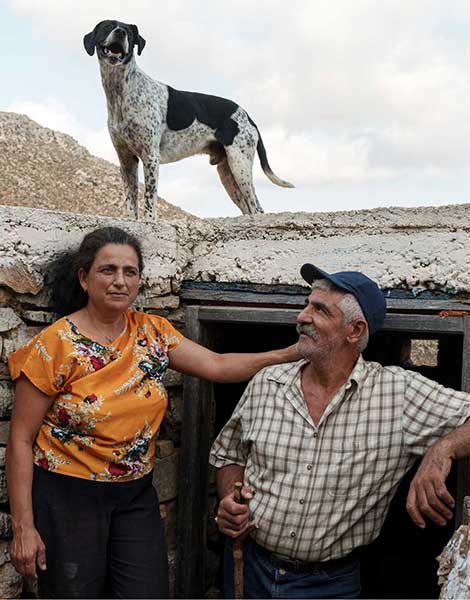
© Konstantinos Tsakalidis/SOOC
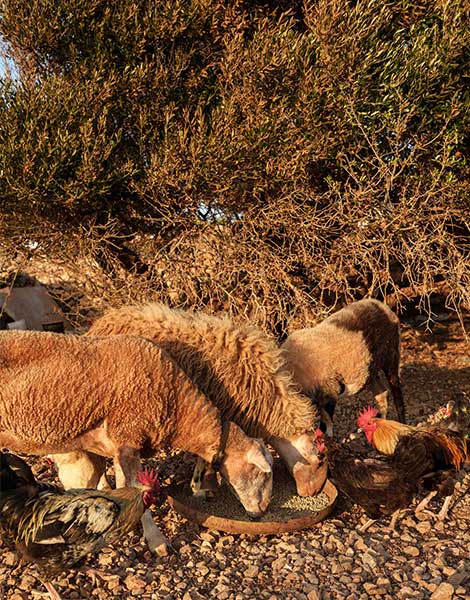
© Konstantinos Tsakalidis/SOOC
Celebrating the “turning”
They explain that things run more smoothly on the western side. They do not need to carry water; their pasture is easily accessible by car; and, most importantly, they have a fully equipped milking parlor. According to municipal pasture management regulations, their herds must graze one year to the east and another to the west. According to Giannis, a fifth-generation farmer who learned farming from his grandfather, shepherds celebrated the “turning,” which involved moving herds from one side to the other. “Every June 15, all the shepherds wore new shoes, decorated their animals, attached bells to them, loaded their cheese-making utensils and belongings onto the donkeys, and turned their herds together, like a family.”
Together with his wife, who is ten years younger and was also raised in this lifestyle, they opened their cheese dairy in 2010, after having their three children. Their vision was to carry on the region’s cheese-making tradition by producing the same authentic products their ancestors made in the mitata using certified processes, so they could sell them legally. To this day, they are the only certified cheesemakers in Kasos and Karpathos. In addition to the challenges of the job, they also must deal with black market competition, as others sell their cheeses in bulk without invoices.
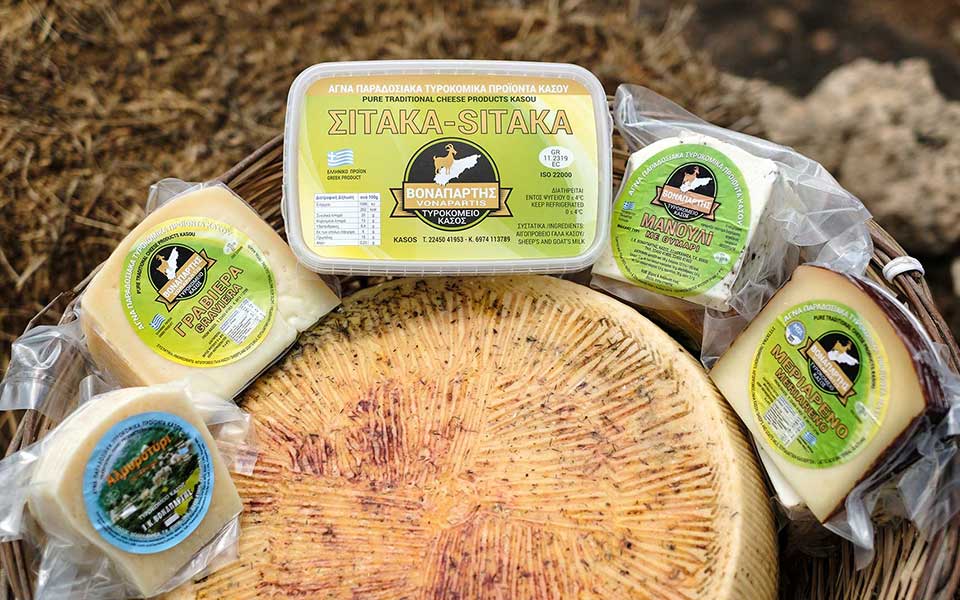
© Konstantinos Tsakalidis/SOOC
However, the difficulties did not discourage them; rather, they strengthened their resolve. When his friends left to work as seamen in the merchant marine, Giannis dropped anchor on the island to become a cheesemaker. He follows the herd every day on the mountain slopes of Kasos; they insist on free grazing because, as they say, “real” raw material is one of the two main ingredients in their products.
The other is their know-how, the result of the cheese-making secrets they inherited and their extensive experience in the trade. From a young age, they were taught to use their fingers to determine when milk was ready for rennet, since they didn’t have a thermometer. “Sitaka cheese was the most difficult to get right. We kept measuring the temperature and checking the milk every hour, but we couldn’t figure out what went wrong. Even though we have stabilized the production process, the weather and the time of milking continue to play an important role. You can’t escape nature,” says Mary, with the cheese ripening chamber in the background.
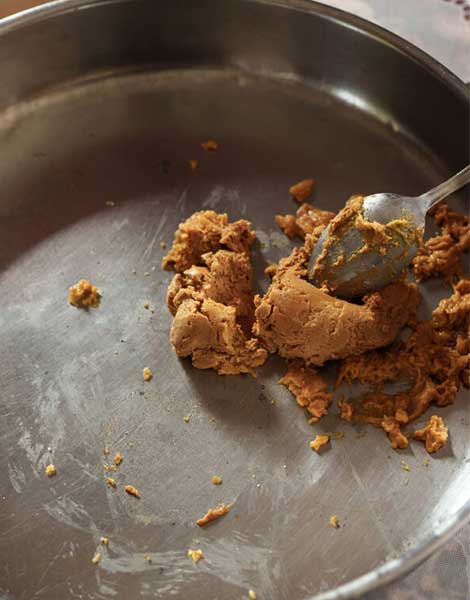
© Konstantinos Tsakalidis/SOOC
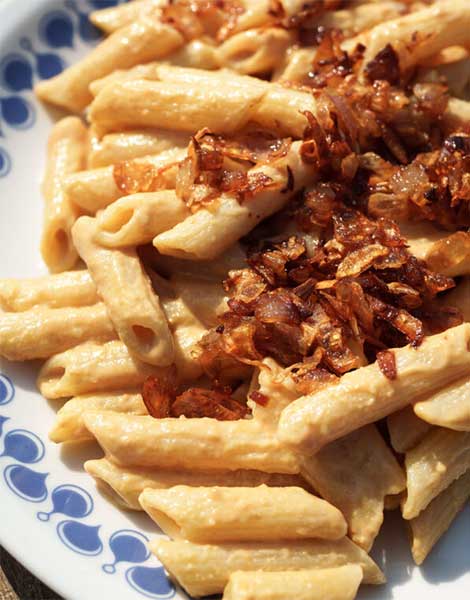
© Konstantinos Tsakalidis/SOOC
Sitaka, the super star
Sitaka, a creamy dairy product whose discovery dates to ancient times, was created by shepherds who did not want to waste the milk that had gone sour during the summer months. Because there were no refrigerators and the temperature was high on the island, they heated the sour milk in cauldrons. Depending on the amount of milk and whether it was sheep or goat milk (the latter requiring more cooking time), they would stir continuously for seven to twelve hours until the water evaporated. To scrape the solids from the cauldron’s bottom, they used a kalamoutsi, a long stick with thyme tied to the end. What remained was the sitaka, which they mainly ate with makarounes (traditional pasta).
In addition to sitaka, their limited production includes meriarenο (limited-production soft graviera made from whole goat and sheep milk with a distinctive flavor), a very tasty graviera, salty cheese, myzithra, dryla (whole milk cream, which the Kasians eat with freshly baked bread), butter, and other traditional dairy products of the island, such as elaiki (dry anthotyro cheese preserved in butter).
They hope that their three children will be able to continue their work. Eirini, a graduate of Ioannina’s Dairy School, already works in the cheese dairy, Eudokia manages their port shop, and Kostas helps with the herd.
Vonapartis won First Prize at the 16th Gastronomos Quality Awards, organized by Gastronomos, Greece’s leading food magazine and held in December of 2023.
This article was previously published in Greek at gastronomos.gr.

